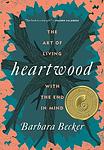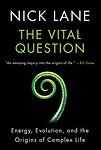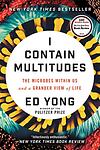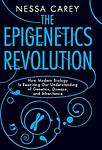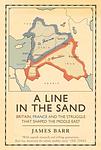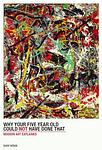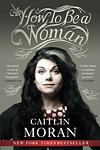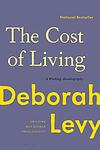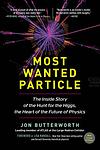The Greatest British "Nonfiction" Books Since 2010
Click to learn how this list is calculated.
This list represents a comprehensive and trusted collection of the greatest books. Developed through a specialized algorithm, it brings together 290 'best of' book lists to form a definitive guide to the world's most acclaimed books. For those interested in how these books are chosen, additional details can be found on the rankings page.
Genres
Countries
Date Range
Reading Statistics
Click the button below to see how many of these books you've read!
Download
If you're interested in downloading this list as a CSV file for use in a spreadsheet application, you can easily do so by clicking the button below. Please note that to ensure a manageable file size and faster download, the CSV will include details for only the first 500 books.
Download-
26. With The End In Mind by Kathryn Mannix
The book is a profound exploration of the final stage of human life, offering a collection of narratives that shed light on the dying process. Drawing from the author's extensive experience as a palliative care specialist, it aims to demystify death, encouraging open conversations and providing insight into the emotional and physical experiences of patients and their families. Through its stories, the book emphasizes the importance of living well until the end, and it seeks to equip readers with the understanding and language to face death with dignity, compassion, and a sense of preparedness.
-
27. Levels of Life by Julian Barnes
This introspective and deeply moving book is a three-part meditation on love, loss, and the nature of grief. The first part explores the history of ballooning and photography, the second tells a fictional tale of a love affair between two balloonists in the 19th century, and the third part is a poignant memoir of the author's grief following the death of his wife. The book beautifully intertwines these threads to explore the profound impact of love and the deep pain of loss, while offering a raw and honest look at the grieving process.
-
28. The Myth Of The Strong Leader by Archie Brown
This book critically examines the widespread belief that strong, dominant leadership is the most effective form of governance, arguing instead for the value of leaders who are collaborative, collegial, and democratic. Through a comprehensive analysis of political leaders across different eras and countries, the work challenges the conventional wisdom that the most successful leaders are those who wield power in an autocratic or charismatic manner. Instead, it posits that truly transformative leaders are those who prioritize the empowerment of their teams and the broader populace, demonstrating that effective leadership is less about consolidating power in the hands of the few and more about distributing it in a way that fosters collective progress and democratic engagement.
-
29. The Life Changing Magic Of Numbers by Bobby Seagull
This book is a passionate exploration of the world of numbers and how they shape our daily lives, written by an enthusiastic mathematician and educator. It serves as both a personal narrative and a guide to the practical applications of mathematics, aiming to demystify mathematical concepts and demonstrate their relevance. The author uses anecdotes, puzzles, and real-world examples to illustrate the beauty of mathematics and its crucial role in everything from personal finance to sports, music, and beyond. The book seeks to inspire a newfound appreciation for numbers and their life-changing magic, encouraging readers to see the subject not as a daunting school topic but as a powerful tool for making sense of the world around us.
-
30. The Vital Question by Nick Lane
This book explores the deep and intriguing question of why life is the way it is. It delves into the origins of life on Earth, examining the critical role that energy plays in the development and evolution of living organisms. The author presents a compelling argument that the peculiarities of life, from the complexity of cells to the unique nature of sex and death, can be traced back to the energy constraints and opportunities that arose billions of years ago. By integrating concepts from a range of scientific disciplines, the book offers a groundbreaking perspective on the fundamental principles that underpin life itself, challenging conventional wisdom and providing new insights into the evolution of life on our planet.
-
31. I Contain Multitudes by Ed Yong
This book delves into the complex and often overlooked world of the microbiome, the myriad of microscopic organisms living within and around us. Through engaging storytelling and rigorous science, it explores how these tiny entities influence everything from our health and immune system to our behavior and evolution. The narrative weaves together fascinating examples from across the natural world, demonstrating how microbes are not just pathogens to be eradicated but vital partners in the planet's ecosystems. It challenges our perceptions of microbes, revealing how they are integral to our past, present, and future.
-
32. Caravaggio by Andrew Graham Dixon
This book provides an in-depth exploration of the life and work of the revolutionary Italian painter known for his dramatic use of light and shadow, which came to define the Baroque style of painting. The biography delves into the artist's tumultuous personal life, marked by violent encounters and a temper as fiery as his groundbreaking artistic talent. Through meticulous research, the author reconstructs the painter's journey from his humble beginnings to his rise to fame and his ultimate tragic downfall, offering insights into his masterpieces and his enduring influence on the art world.
-
33. Operation Mincemeat by Ben Macintyre
The book is a gripping account of one of the most successful and bizarre deception operations of World War II, orchestrated by British intelligence. It tells the true story of how British officials concocted an elaborate scheme to mislead Nazi Germany about the Allies' next strategic move by planting false information on a corpse dressed as a British officer. The body, carrying fake secret documents suggesting an Allied invasion of Greece and Sardinia, was set adrift to be found by Axis forces. The ruse, hinging on the authenticity of the planted persona and the documents he carried, aimed to divert German forces away from the actual target: Sicily. The operation's success played a crucial role in the overall Allied campaign in the Mediterranean, showcasing the ingenuity and daring of wartime espionage.
-
34. 1,000 Years Of Annoying The French by Stephen Clarke
This book is a humorous and informative exploration of the longstanding rivalry between England and France, delving into a millennium's worth of historical conflicts, cultural misunderstandings, and entertaining anecdotes. The author examines key events and figures that have shaped the relationship between the two nations, from the Norman Conquest to modern-day politics, all while debunking myths and offering witty insights into how these two European neighbors have continued to eye each other with a mix of animosity and fascination. Through its engaging narrative, the book reveals the complexities and idiosyncrasies of Anglo-French history, showcasing how the past thousand years have been marked by both mutual annoyance and grudging admiration.
-
35. The Epigenetics Revolution by Nessa Carey
"The Epigenetics Revolution" explores the fascinating field of epigenetics, which studies how external factors can influence gene expression without altering the DNA sequence itself. The book delves into how epigenetic changes can affect an organism's development, contribute to diseases like cancer, and potentially be passed down through generations. By examining cutting-edge research and its implications, the book reveals how understanding epigenetics could revolutionize medicine, agriculture, and even our understanding of evolution.
-
36. Capitalism Without Capital by Jonathan Haskel
This book delves into the modern economic shift towards an intangible asset-driven economy, distinguishing it from traditional, tangible asset-based systems. It explores how investments in intangible assets like design, branding, R&D, and software are overtaking physical assets in importance, fundamentally altering the landscape of business and economy. The authors analyze the unique challenges and opportunities this shift presents, including issues of economic measurement, policy-making, and the distribution of wealth. Through a comprehensive examination, the book provides insights into how the rise of intangible assets is reshaping capitalism, influencing everything from how companies operate to how economies are managed and grow.
-
37. Jerusalem by Simon Sebag Montefiore
The book is a comprehensive and vivid historical narrative that delves into the rich and tumultuous past of one of the world's most contested and sacred cities. Spanning thousands of years, the work chronicles the city's inception, its central role in the development of three major monotheistic religions, and the endless series of conflicts and transformations it has undergone. Through a tapestry of personal stories, political intrigue, and religious fervor, the author weaves together a detailed account of Jerusalem's multifaceted history, revealing how this unique city has been revered, fought over, and cherished by countless generations.
-
38. A Line In The Sand by James Barr
This book delves into the complex history of the modern Middle East, focusing on the post-World War I era when Britain and France drew arbitrary borders, creating new nations and sowing the seeds for future conflicts. It examines the clandestine struggle between these colonial powers as they vied for dominance in the region, often at the expense of the local populations. The narrative reveals how the duplicitous actions and broken promises of Western powers during this period set the stage for enduring turmoil and established a legacy of distrust and instability that continues to affect the geopolitics of the Middle East to this day.
-
39. The Good, The Bad, And The Multiplex by Mark Kermode
In this critical exploration of the modern film industry, the author delves into the decline of proper movie-going experiences, lamenting the rise of multiplex cinemas that prioritize profit over the quality of both films and the viewing experience. With a blend of humor and insight, the book critiques the dominance of blockbuster franchises, the homogenization of international cinema, and the challenges faced by smaller films in a market driven by commercial interests. The author also examines the impact of these trends on audiences and filmmakers alike, calling for a return to the days when cinema was as much about artistry and engagement as it was about entertainment.
-
40. Women & Power: A Manifesto by Mary Beard
This book is a compelling exploration of the history of women in power, examining the cultural underpinnings of misogyny from ancient times to the present day. It argues that women have always been excluded from positions of power, and that this exclusion is deeply ingrained in our collective psyche. The author uses examples from history, literature, and contemporary politics to illustrate her points, challenging readers to reconsider their own assumptions about gender and power. She also offers insights into how we can break down these barriers and create a more equitable society.
-
41. Why Your Five Year Old Could Not Have Done That by Susie Hodge
This book offers a compelling defense of modern art, challenging the common criticism that abstract and contemporary works are so simplistic that a child could have created them. Through an exploration of various modern masterpieces, the author demystifies the techniques, visions, and innovations behind such creations, providing insights into the complexity and depth of thought that these works embody. The book serves as an educational guide, enlightening readers about the artistic value and significance of modern art, and dispelling the notion that its simplicity undermines its legitimacy as a form of skilled and meaningful expression.
-
42. The Future Of Capitalism by Paul Collier
In "The Future of Capitalism," the author delves into the current challenges facing capitalist societies, including deepening economic divides, geographical disparities, and the erosion of ethical norms that have traditionally guided market economies. The book argues for a reinvention of capitalism, advocating for a model that emphasizes social solidarity, a sense of obligation to the community, and policies that address the needs of the most vulnerable. Through a blend of personal experience, economic analysis, and policy recommendations, the author makes a compelling case for a more ethical and inclusive form of capitalism that can address the 21st century's complex social and economic issues.
-
43. Nine Pints by Rose George
This book offers an in-depth exploration of blood, a substance that is both a vital component of our physiology and a symbol of life, death, and disease throughout human history. The narrative takes readers on a global journey, delving into the science, culture, and commerce of blood, from the history of bloodletting to the contemporary controversies surrounding blood donation and the blood trade. Through engaging storytelling, the author reveals the complexities of blood as a biological entity and its broader significance in society, touching on topics such as menstruation, bloodborne diseases, and the life-saving role of blood transfusions, while also examining the ethical implications of blood banking and the global inequalities in blood supply and access.
-
44. How To Be A Woman by Caitlin Moran
The book is a humorous yet insightful memoir and feminist manifesto that combines personal anecdotes with broader socio-political commentary. The author navigates through various stages of womanhood, from adolescence to middle age, tackling subjects such as body image, workplace inequality, love, and motherhood. By sharing her own experiences and challenges, she invites readers to consider the complexities of being a woman in the modern world, advocating for a more inclusive and liberated approach to feminism that encourages women to embrace their identities and fight for equality.
-
45. Alex Ferguson: My Autobiography by Sir Alex Ferguson
The book is a candid memoir by one of the most successful and respected managers in football history, chronicling his career and life at the helm of one of the world's most famous football clubs. The author reflects on his managerial philosophy, the art of leadership, the highs and lows of his tenure, and his relationships with some of the biggest names in the sport. He shares insights into his personal life, his unwavering commitment to the club, and the strategies that led to numerous domestic and international trophies. This autobiography is not just a chronicle of a storied career, but also a blueprint of what it takes to be at the top in the highly competitive world of professional football.
-
46. The Cost of Living by Deborah Levy
"The Cost of Living" is a memoir that explores the author's journey through womanhood, motherhood, and writing. After her marriage dissolves, the author moves to a dreary apartment with her two daughters, facing the challenges of single parenthood while trying to maintain her career as a writer. The book is a reflection on societal expectations of women, the sacrifices made, and the price paid for freedom and independence. It's a thoughtful meditation on feminism, the complexities of love, and the pursuit of a creative life.
-
47. Life On The Edge by Johnjoe McFadden, Jim Al-Khalili
"Life on the Edge" explores the fascinating field of quantum biology, a cutting-edge scientific domain where quantum mechanics meets biology. The book delves into how quantum phenomena, typically observed in the microscopic world of atoms and particles, are integral to the processes of life itself. Through engaging explanations and examples, it examines how quantum mechanics plays a crucial role in various biological mechanisms, from the navigation of birds to our sense of smell and the process of photosynthesis. This intriguing intersection of physics and biology challenges traditional notions and suggests that the quantum world is more relevant to our daily lives than previously thought.
-
48. Most Wanted Particle by Jon Butterworth
"Most Wanted Particle" is an engaging exploration of the world of particle physics, centering on the discovery of the Higgs boson at the Large Hadron Collider (LHC). Written by a leading physicist involved in the search, the book offers a firsthand account of the challenges, triumphs, and day-to-day workings at CERN, one of the world's largest and most respected centers for scientific research. The narrative demystifies complex scientific concepts and provides insights into the collaborative nature of scientific discovery, the excitement of confirming theoretical predictions, and the ongoing quest to understand the fundamental components of the universe.
-
49. The Yorkshire Shepherdess by Amanda Owen
The book is a heartwarming memoir that offers a window into the life of a woman who has embraced the challenges and joys of farming in one of the most remote and rugged regions of England. With humor and honesty, the author recounts her journey from a suburban upbringing to becoming a shepherdess, wife, and mother of a large family on a sprawling farm. Through her stories, readers experience the daily trials and triumphs of rural life, from braving harsh weather and tending to her flock to raising her children in tune with the natural world. The narrative celebrates the resilience of the human spirit, the importance of community, and the simple beauty of a life lived in harmony with the land.
-
50. Meadowland by John Lewis-Stempel
"Meadowland" provides an intimate and evocative month-by-month account of a year in the life of a farmland meadow in the heart of rural England. The author, a farmer and naturalist, offers rich descriptions of the landscape and wildlife, weaving personal observations with poetry and lore. Through the changing seasons, from the first snowdrops of January to the December frost, readers are immersed in the natural world and its cycles. The book celebrates the beauty and complexity of an ecosystem often overlooked, highlighting the intricate relationships between plants, animals, and the land, and urging a deeper appreciation for the unassuming yet vital meadows of the countryside.
Reading Statistics
Click the button below to see how many of these books you've read!
Download
If you're interested in downloading this list as a CSV file for use in a spreadsheet application, you can easily do so by clicking the button below. Please note that to ensure a manageable file size and faster download, the CSV will include details for only the first 500 books.
Download